Museum for Intercultural Dialogue in Kielce
Museums, ethnographic parks
The Museum for Intercultural Dialogue, the youngest branch of the National Museum in Kielce, welcomes visitors in its modernised interiors of an 18th century tenement house called Pod Trzema Herbami (Under Three Coats of Arms), situated in the very heart of Kielce, in the market square,. The modern, multimedia-equipped Museum offers visitors the chance to discover national, ethnic, religious, and gender-determined diversity and to look at the many voices in art and architecture.
The Museum for Intercultural Dialogue is a museum of ideas. It is a place of positive relations, although it also addresses difficult subjects, resulting from a lack of dialogue. In its activity, the institution presents history, culture and tradition, constantly highlighting the diversity of views, beliefs, confessions and opinions. It builds awareness of the wealth of differences, promotes solidarity, equality, and tolerance, while negating all forms of discrimination. “I would like to see our story as a contribution to a debate concerning culture and cultural exchanges, so that the Museum becomes the centre of active discussion about intercultural dialogue, from the oldest history of humanity to today. Culture is a great bond that brings together nations, religions, art fields and many different areas”, says Dr Robert Kotowski, director of the National Museum in Kielce.
Diversity in the Museum for Intercultural Dialogue is presented within:
- the permanent multimedia narrative exhibition, using, among other things, wide-format screens and ever-growing to allow for new content. It also brings closer to the visitor the idea of intercultural dialogue and selected cultures, their coexistence, mutual learning from the wealth of experiences, the ups and downs of these relations, both in the past and today, in the region, in Poland, in Europe and in the world;
- temporary exhibitions presenting dialogue in culture, but also in art, architecture, etc.;
- scientific conferences and training;
- education, including classes and workshops, organised in an educational room adapted for this purpose;
- meetings with authors, concerts, performances and film shows.


